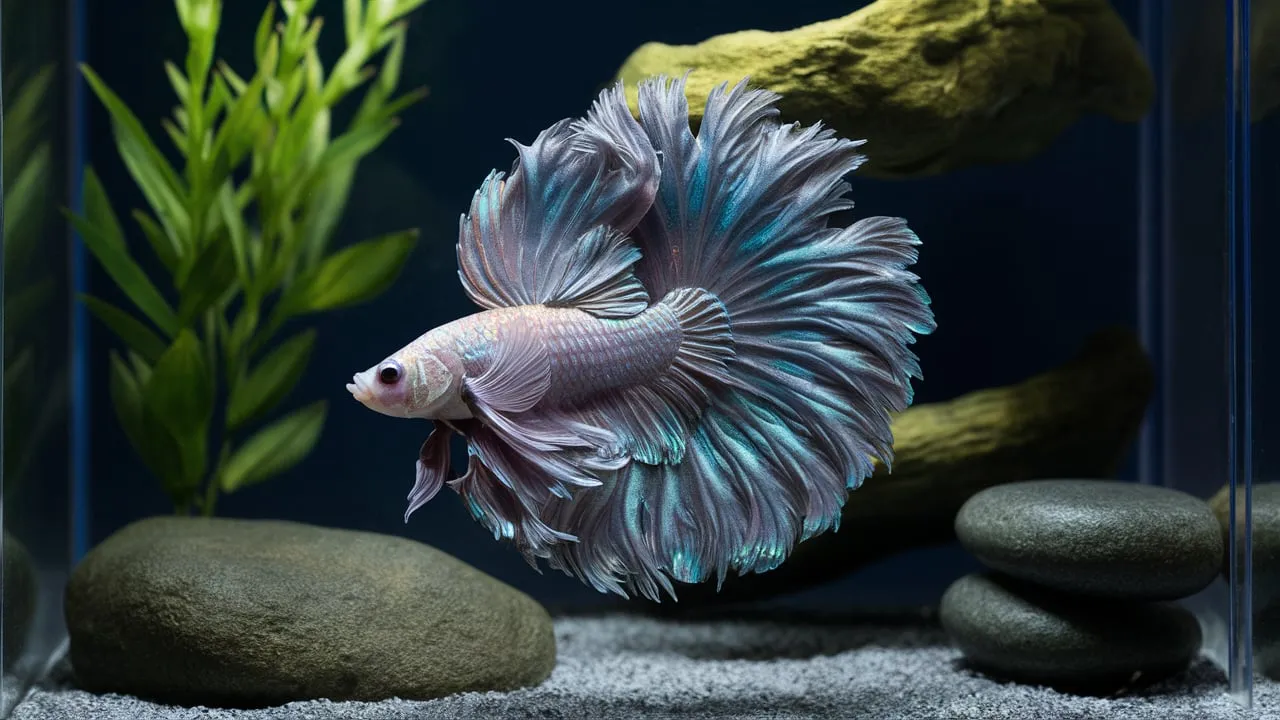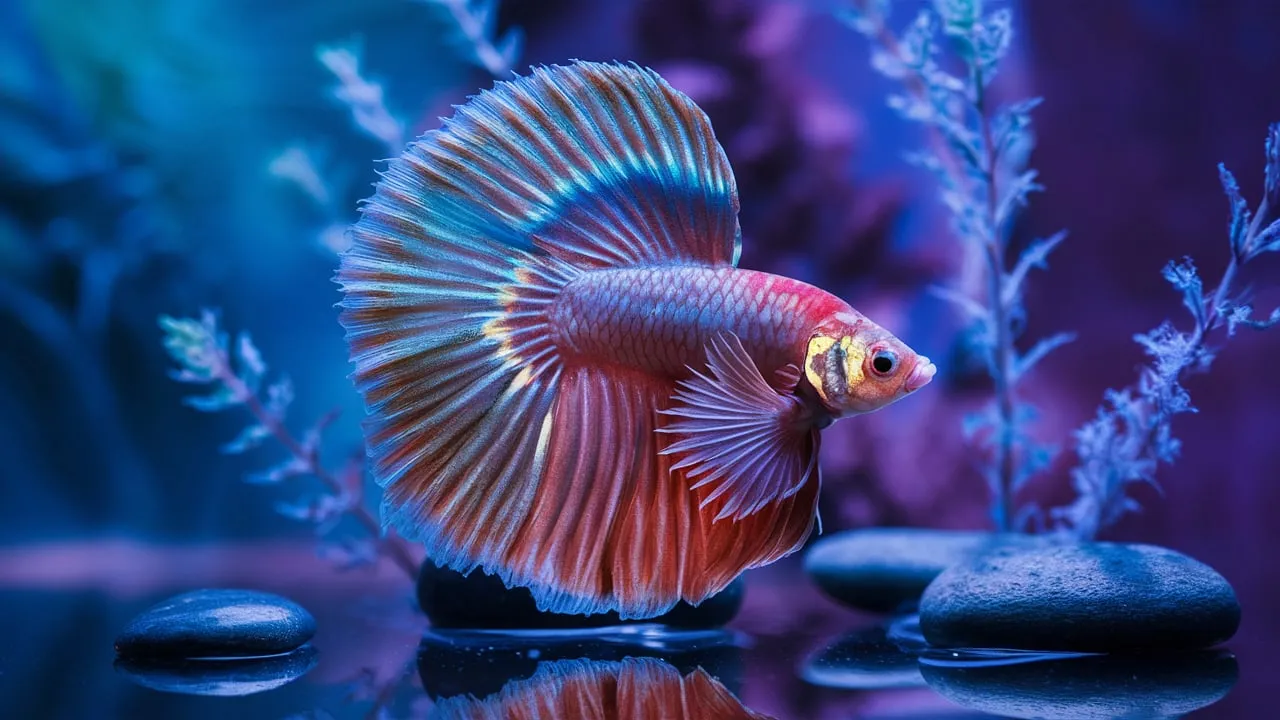While many betta varieties are readily available and affordable, some are exceptionally rare and expensive, making them highly sought after by collectors and enthusiasts.
This Betta Fish Guide will delve into the world of Most Expensive Betta Fish, exploring the factors that contribute to their high price, showcasing some of the most prized varieties, and providing insights into their care and breeding.
Understanding the Betta Fish Market
Before we delve into the most expensive betta fish, it’s crucial to understand the market dynamics that drive these high prices.
The Betta Fish Industry
The betta fish industry has grown significantly over the past few decades. What was once a niche hobby has blossomed into a global market worth millions of dollars. According to a recent study by the American Pet Products Association, the ornamental fish industry, including betta fish, contributes to a substantial portion of the $103.6 billion pet industry in the United States alone.
Factors Influencing Betta Fish Prices
Several factors contribute to the high prices of premium betta fish:
- Rarity: Unique color patterns or fin types can significantly increase a betta’s value.
- Genetics: Fish from champion bloodlines often command higher prices.
- Show Quality: Bettas that meet strict standards for competitive showing are more expensive.
- Breeder Reputation: Fish from renowned breeders often fetch premium prices.
- Market Demand: Trends in the aquarium hobby can drive up prices for certain varieties.

The Most Expensive Betta Fish Varieties
Now, let’s explore some of the most coveted and expensive betta fish varieties in the world.
Platinum Armageddon Betta
The Platinum Armageddon Betta is often considered the crown jewel of the betta world. These fish are characterized by their stunning metallic platinum coloration with vibrant red fins.
Price Range: $1,000 – $1,500
Key Features:
- Metallic platinum body
- Vibrant red fins
- Extremely rare genetic combination
Fancy Dragon Scale Betta
Dragon Scale Bettas are known for their thick, armor-like scales. The Fancy Dragon Scale variety takes this a step further with intricate patterns and rare colorations.
Price Range: $800 – $1,200
Key Features:
- Thick, iridescent scales
- Complex color patterns
- Often feature rare colors like purple or yellow
Golden Albino Betta
Golden Albino Bettas are a rare mutation that results in a fish with a golden body and red eyes. Their scarcity and unique appearance make them highly sought after.
Price Range: $500 – $800
Key Features:
- Golden-yellow body
- Red or pink eyes
- Extremely rare genetic mutation
Black Orchid Crowntail Betta
The Black Orchid Crowntail combines the striking appearance of the crowntail fin type with a deep, velvety black coloration.
Price Range: $300 – $500
Key Features:
- Deep black coloration
- Distinctive crowntail fin type
- Often with iridescent blue or purple highlights
Koi Galaxy Betta
Koi Galaxy Bettas feature a mesmerizing blend of koi-like patterns with the galaxy marble gene, resulting in a fish that looks like a living work of art.
Price Range: $200 – $400
Key Features:
- Koi-inspired color patterns
- Marble gene for color changing properties
- Often feature metallic scales

The Science Behind Expensive Betta Fish
To truly appreciate the value of these expensive betta fish, it’s important to understand the science and breeding techniques behind their creation.
- Genetics and Selective Breeding
Dr. Emily Chen, a renowned ichthyologist specializing in betta genetics, explains, “The creation of these high-value betta varieties is the result of years, sometimes decades, of careful selective breeding. Breeders work to isolate and combine specific genetic traits to produce fish with unique colorations, fin types, and overall appearance.”
- The Role of Epigenetics
Recent research has shown that epigenetics plays a significant role in betta fish coloration. Environmental factors can influence gene expression, leading to variations in color and pattern even among fish with similar genetic backgrounds.
- Health Considerations
It’s important to note that some of the genetic traits that make these fish visually stunning can also impact their health. Dr. James Thompson, a veterinarian specializing in ornamental fish, cautions, “While these fish are undoubtedly beautiful, some genetic traits can lead to health issues. For example, dragon scale bettas may experience vision problems due to their thick scales growing over their eyes.”
The Market for Expensive Betta Fish
Understanding the market dynamics for high-end betta fish can provide insight into their value and appeal.
- Collectors and Enthusiasts
The primary market for expensive betta fish consists of dedicated collectors and enthusiasts. These individuals often have extensive knowledge of betta genetics and are willing to pay premium prices for rare or exceptional specimens.
- Competitive Showing
Betta fish shows, similar to dog or cat shows, are popular events where owners can showcase their prized fish. Winning fish at these events can significantly increase in value, sometimes doubling or tripling their original price.
- Investment Potential
Some view expensive betta fish as an investment. A fish purchased for a few hundred dollars could potentially produce offspring worth thousands. However, this is a high-risk endeavor that requires extensive knowledge and experience.
Conclusion
The world of expensive betta fish is a fascinating intersection of art, science, and commerce. These living jewels represent the pinnacle of selective breeding and showcase the incredible diversity of the betta species. However, it’s important to remember that even the most valuable betta is still a living creature deserving of proper care and respect.
Whether you’re a serious collector, a competitive shower, or simply an admirer of these beautiful fish, understanding the factors that contribute to their value can deepen your appreciation for these aquatic wonders.

Related Posts
Are Betta Fish Nocturnal? Mystery of Betta Sleep Patterns
Shrimp Tank Mates: Choosing The Right Companions
Are Fish Omnivores? A Look at Fish Feeding Habits